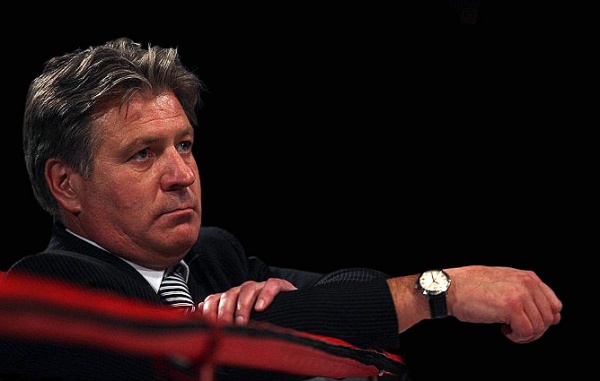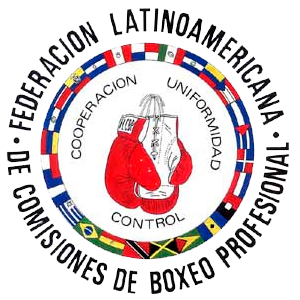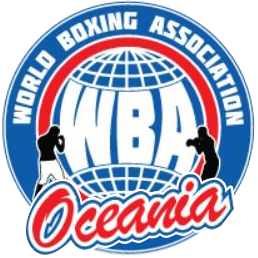
The General Secretary of the British Boxing Board of Control is Robert W. Smith. He is energetic. He is no-nonsense. He is in the catbird seat.
We met in Panama during the WBA convention and discussed the current state of boxing in the UK.
“I’m the General Secretary, which is really in American terms is the Commissioner,” he told WBAnews.com. “I’m an engineer, but I boxed as an amateur, I boxed as a professional, I trained a number of boxers, and just generally from that. My father was a boxing manager, and my grandfather was a boxer, so I’ve got boxing in my blood all along and just gradually came from being a trainer to being asked to work for the Commission.”
Smith came to office in 2008-2009. There have been dramatic changes in the British fight scene during the intervening years.
“I think success breeds success,” he said. “I think when Ricky Hatton came along and Manchester was buzzing as a fight city, and now we have people in London, we have David Haye, et cetera, and now Anthony Joshua, those sort of things get people to the gyms and if you can get 10 people to go to the gym and two actually continue boxing, that’s quite successful. I’m a big believer success breeds success, but also hard work, and we have some very good trainers in Great Britain, which is obviously essential for anybody to move on to be a good boxer.”
Unlike in the US where there are multiple commissions, one for each state and tribal commission, in Great Britain it is singular.
“We govern the whole of professional boxing in Great Britain,” said Smith. “There is an amateur, we work closely with them, but they are two different government bodies. In Great Britain we obviously have England, Scotland, Wales, and Northern Ireland. But unlike America, where you don’t have an American Boxing Board of Control, every state looks out for itself. The one thing America does have which is something of an advantage, I think, is your statutory body. Your government commissions are all appointed. We are not. So we are there for the will of the people. Our license holders pay my salary, pay for the office to work, et cetera, and obviously if they get upset with us, we have our yearly meetings where we make it known. But we are doing well. Everybody seems to be quite happy how it’s running, and it’s always been that way.”
Talk of “license holders” is Greek to me. I asked him to explain.
“We have a thousand licensed boxers. We have promoters, managers, trainers, master of ceremonies—everybody within boxing. If they are part of the British Boxing Board of Control they pay an annual fee, so they have a say how the sport is run. We also take taxes from tournaments. But we’re nonprofit. So everything we get we pour back into the company.”
It has been a long time since Lennox Lewis was heavyweight champion. And now we have Tyson Fury. The new champ has ruffled feathers on this side of the pond. I wondered if it was the same in Great Britain.
“Well, no,” Smith said. “Tyson is Tyson. How he’s been brought up, that’s how he is. In fact, if you were to meet him face to face, he’s a very nice guy. Something seems to change when you put a camera or microphone. He’s a nice guy, but that’s the upbringing he’s had. They are from traveling community and they are very loyal to each other and that’s just how he is. We have to deal with that, and hopefully he’ll calm down a little bit. But a lot of it is to with making the fights. He was chasing Mr. Klitschko for a long time. I think his tactics for that fight with regards to what happened before seemed to unsettle Klitschko. He’d never dealt with anybody like that before, and anybody who would argue with regard to the canvas, et cetera or whatever, it seemed to work. So he is what he is and we’re just going to live with him.”
Wladimir had dealt with David Haye and Vitali had dealt with Dereck Chisora, so there was some precedent for dealing with unpredictable challengers.
“I think the difference between that really is, well, there are a couple of things really. I understand what you’re saying, but I don’t know if we breed the same sort of heavyweights. I don’t really know. But Tyson is different. Tyson is a huge man, and he is different than the other two. Dereck went through an episode where he was in the wrong, we know that, and David needed to do what he did to get the fight. Fury was the mandatory challenger. They had to fight him. And the way for Fury to upset the applecart a little bit is to do what he did. A lot of people didn’t like it. Some of things he said made you cringe. But that’s what he did and he won the championship.”
Klitschko had been slipping. He may not be a flawed person, but he is a flawed fighter. I asked Smith if he was surprised at Fury’s victory.
“Was I surprised? I don’t think I was surprised. I was disappointed in Klitschko. I don’t know whether he got old overnight, which can happen, but I don’t think he knew how to deal with a big man who didn’t stand still. And Tyson and his trainer Peter Fury obviously worked out what they were going to do and they got it absolutely spot on. Tyson has a great deal of ability. Now whether it’s being in the right place in the right time I don’t know. But who cares? He went off and won it. Tyson’s only 26, 27. He’s a baby in heavyweight terms, so he’s got a great deal of improvement to make as well. But he’s world heavyweight champion and we still haven’t got the final product.”
Robert Smith is pleased about the current state of boxing, especially in the United Kingdom.
“We’ve got 12 world champions,” he said. “We’ve never had that before. Now I’m not an idiot. I know that’s going to slip. But what we’ve got to do is make sure we’ve got something coming up underneath to maybe get back there again. I don’t think there’s any other country with 12 world champions. Please correct me if I’m wrong, but I can’t think of any. But we have a great pool of talent, and we also have a great pool of talent coming up behind. The one thing that does sell in Great Britain and we’ve got some great opportunities for some domestic clashes. We had Quigg and Frampton in February. That sold out at 20,000 seats at Wembley. We had Froch and Groves at Wembley Stadium. Eighty thousand people went to that. You don’t get that anywhere else I don’t think. And we can do that again. So things are looking very good.”
This article was penned by the author who is not related to the WBA and the statements, expressions or opinions referenced herein are that of the author alone and not the WBA.

















